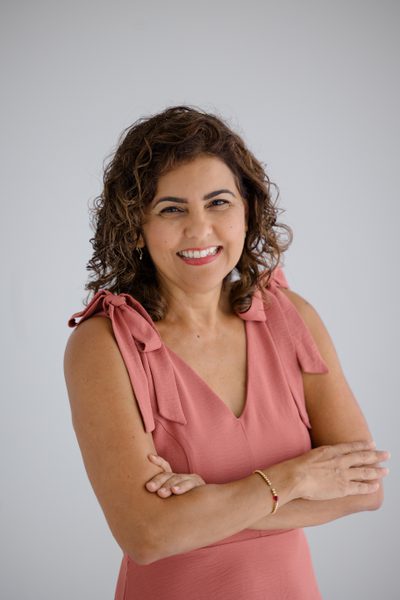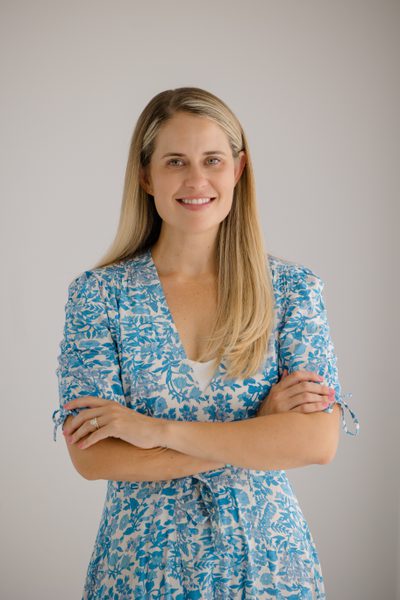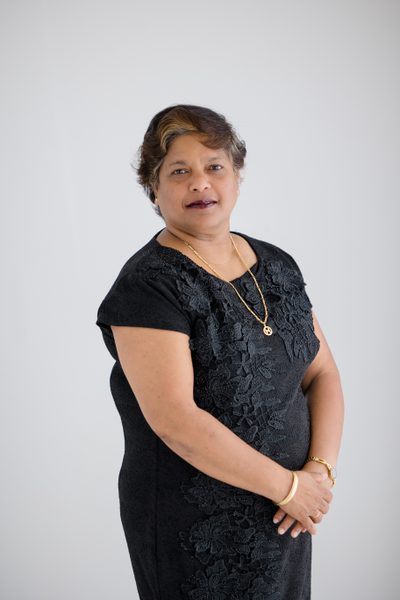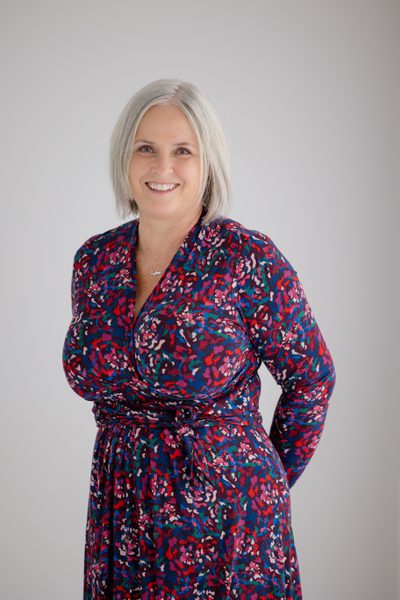Exceptional preschool principals have the power to transform a preschool into an outstanding environment for young learners. Discover more about Cayman’s committed and inspiring preschool leaders.

Deborah Chaves-Thompson
Deborah Chaves-Thompson is the Principal of Montessori By The Sea, which she co-founded 24 years ago with a clear vision for a community that nurtures and inspires a legacy of limitless possibilities.
What has been the best moment of your career so far?
The thing that brings me the most joy is when our alumni visit and share how much their time at the school meant to them and how it guided them through university and even to their careers. Some of our graduates even have their children attending MBTS. We have always wanted MBTS to be a legacy for our students, so that is quite heartwarming.
How has teaching changed or evolved since you first began working in education?
When MBTS first opened, the Montessori philosophy was seen as an alternative way and not necessarily 'real school'. Since then, the holistic approach which is at the heart of the philosophy is now recognised as best practice in laying a foundation for lifelong learning, as well as facilitating the development of characteristics of global citizenship.
Do you think there should be more opportunities to teach outdoors in Cayman?
Teaching outdoors provides a wonderful learning opportunity for children, as does getting out in the community. I can’t speak to how many outdoor learning opportunities are presented to children outside of our school, but they are definitely invaluable. We are proponents of outdoor learning and incorporate it as much as is feasible.
What has been your greatest concern for children in recent years?
The need for children to develop resilience. Children today have a voice which should be heard but they also need to be taught to deal with challenges, gain perspective, manage change and be held accountable for their choices. It is a process which must be modelled for children and through which they have to be guided.
Why is social-emotional learning important in early years?
Children learn best when they feel safe and nurtured. Teaching young children self-regulation and conflict resolution skills lays the foundation for healthy relationships as they continue to mature.

Briana Bergstrom Currie
Briana Bergstrom-Currie took over Montessori School of Cayman in 2016 at just 24 years old. MSC was founded in 1988 by Peggy Anderson and was the first certified Montessori school in Cayman.
What are the most important qualities you look for in your staff?
Flexibility, warmth, enthusiasm and passion. This is a job that you need to love. Having to show up every day with enthusiasm and positivity for your students can be challenging. It’s something you need to genuinely love and be passionate about!
What is your ideal holiday? Where are you going and who are you with?
Little Cayman, being outdoors and on the water with my family. It is my favourite place in the world and holds such a special place in my heart. I've grown up visiting Little Cayman with my family since I was a little girl and there's no place I'd rather be to unwind and refill my cup.
Who was your favourite teacher as a young child and why?
My Year 5 teacher, Ms Joanne Goetz. She had an amazing presence and I remember always being excited to go to school.
What has been your greatest concern for children in recent years?
The increase of screen time, particularly in young children. It’s so detrimental to development, especially in early years, and research has shown that access to screens can impact a child’s language and motor development, as well as their social and sensory skills. Usually, these children have a hard time playing outdoors, using their imagination and concentrating for longer periods. It’s unfortunately very common nowadays!
Why is social-emotional learning important?
Being able to identify one’s feelings from an early age is imperative to providing a strong emotional foundation for our students. It builds on a child’s self-confidence and contributes to healthy holistic development. Our goal is that our students are able to successfully identify their feelings and understand why they feel the way they do, as well as managing everyday social interactions as they get older.

Magdalena Perpetua Fernandes
Magdalena Perpetua Fernandes, originally from Goa, India, is the Principal of St. George’s Anglican Pre-School, which offers private Early Years Education for children aged 2-5 years.
How has teaching changed or evolved since you first became a teacher?
Overall, the evolution of teaching has been marked by technological advancements, a shift towards child-centred learning approaches, emphasis on social-emotional learning, greater focus on diversity and inclusion within classrooms and enhanced professional development opportunities for educators/teachers.
Do you think there should be more opportunities to teach outdoors in Cayman?
The outdoor environment provides a dynamic and enriching educational experience that supports children’s holistic growth, fosters creativity and problem-solving skills, promotes physical and mental wellbeing, builds confidence, and nurtures a connection with nature. Additionally, it allows the students to learn through play.
Do you have any tips for parents who struggle to get their children to read at home?
Parents who struggle to get their children to read at home should use every opportunity to engage their children in reading – road signs on their drive home, labels on food and snacks, discussing pictures and creating stories and allowing them to practise their reading.
If you hadn’t become an educator, what other career might you have chosen?
It is difficult for me to think of a profession other than teaching. Nevertheless, my second choice would have been to become a Guidance Counsellor. Ironically enough, from time to time I have the opportunity to assume that role in my current career.
What are three things you want the children to leave your school feeling confident about?
Children should leave my school with a positive sense of self-worth, confidence in their capacity to learn and elevated social skills.

Lesley Maddock
Lesley Maddock is the Principal at Little Trotters Farm & Nursery School. She and her team have created a rich learning environment where children get to be children.
When did you decide to become a preschool/primary school teacher and why?
I have vivid memories of my childhood, of playing and going off on adventures, and am aware of the lifelong value of these experiences. Being with young children and joining their play resonates with me and has always been my happy place. I just happen to be lucky enough to have managed to make it my job!
What has been your greatest concern for children in recent years?
Like most people, I am concerned about the increase in use of devices and screen time. Young children need emotional connections, opportunities to use their imagination and lots of open-ended play. I worry that the reliance on screens is rewiring their brains, and we may see issues as they mature.
Do you have any tips for parents who struggle to get their children to read at home?
Write your own stories and make little books. Illustrate them with drawings or photos that involve your child. The personal aspect has great appeal to little ones.
How is early reading taught at your school?
With welcoming book corners, a tranquil library area, and a literacy-rich environment, our children are exposed to the joy and value of the written word. We also use the Jolly Phonics programme with our 3-4 year olds. We have adjusted it slightly to make it more accessible to the younger children and it is a fun experience filled with songs, stories, movement, art activities and games.
What are three things you want the children to leave your school feeling confident about?
When children leave Trotters, we hope that they have utter confidence in who they are, a love and excitement towards learning, and a ‘can-do’ mindset!
If you hadn’t become an educator, what other career might you have chosen?
I always wanted to open a bakery and book shop. Maybe one day...





